Commercial Roofing
Adriatic Home Improvement provides flat roof repair and installation services in the following New Jersey counties: Bergen, Morris, Passaic, Middlesex, Essex, Hudson, Ocean, and Somerset.

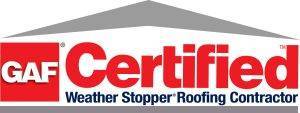

Please contact us today for a Free Estimate. Simply fill out this form and we will get back to you shortly.
Commercial Roofing Overview
At Adriatic Home Improvement, we have built a reputation for delivering exceptional commercial flat roofing services for over 25 years. Our team of certified professionals have the skills and experience to tackle any commercial roofing project, no matter the size or complexity. From repairs to full replacements, we offer a comprehensive range of services to meet the specific needs of business owners.
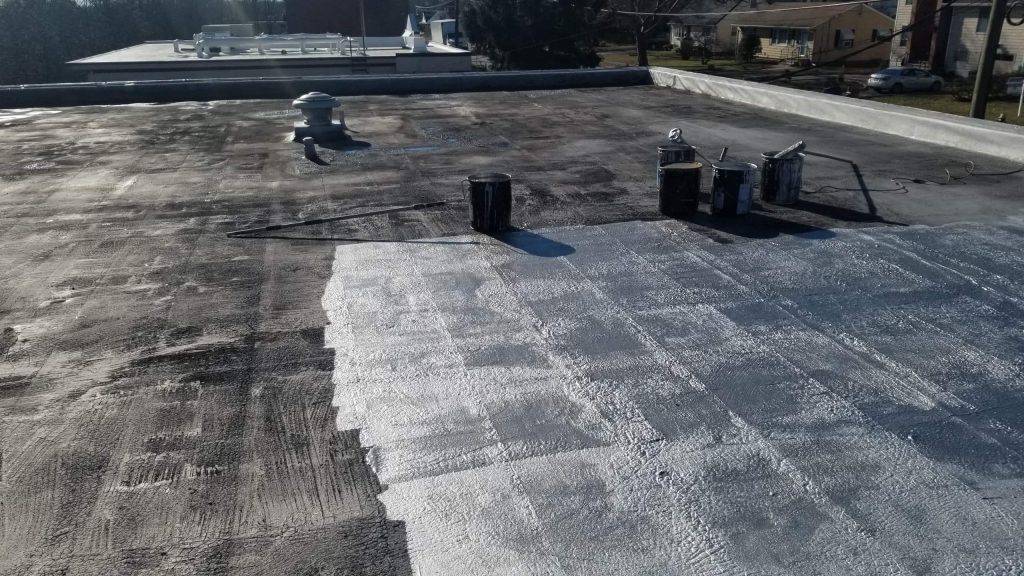
We are dedicated to ensuring customer satisfaction and always use the finest materials and advanced techniques to guarantee top-notch results. Our team works closely with each client to understand their unique needs and ensure complete satisfaction with the final outcome.
Our track record speaks for itself. We are proud of the work we have done for businesses in the past and would be happy to provide references or showcase past projects. Contact us today for a free roof inspection or to learn more about our commercial flat roofing services.
We understand that a new roof for your business can be a daunting process, which is why we prioritize exceptional customer service throughout the entire experience. From your initial estimate appointment to the final inspection, your peace of mind is our top concern.
Knowing When It's Time for a Complete Roof Replacement
Knowing when it’s time for a full commercial roof replacement can be a difficult decision to make. However, there are some tell-tale signs that it may be necessary to replace your roof. At Adriatic Home Improvement, we want to help you make the best decision for your business. Here are a few things to look out for:
- Age: Flat roofs typically have a lifespan of around 20-25 years. If your flat roof is approaching or exceeding this age, it may be time to consider a replacement.
- Pooling water: If you notice water consistently pooling on your flat roof, this could indicate a problem with the drainage system or a potential for leaks.
- Cracks and blisters: Over time, the surface of a flat roof can develop cracks and blisters. This can weaken the roof and increase the risk of leaks.
- Increased energy bills: An aging or damaged flat roof can lead to poor insulation and increased energy costs. If you have noticed a significant rise in your energy bills, it may be time to have your roof inspected.
- Sagging: If you notice any sagging or dipping in your flat roof, this could indicate that the roof structure is failing and may need to be replaced.
It’s important to address these issues as soon as possible to prevent further damage and ensure the safety and comfort of your employees and customers. If you’re unsure about the condition of your commercial roof, our team at Adriatic Home Improvement would be happy to provide a free inspection and help you make the best decision for your business
Commercial Services We Provide
Flat Roof Installation
At Adriatic Home Improvement, our team of certified roofing professionals has years of experience installing high-quality flat roofs for commercial buildings. We use only the best materials and the latest techniques to ensure a durable and long-lasting roof for your property.
Our flat roof installation process begins with a thorough inspection of your current roof and a consultation to determine the best solution for your building’s specific needs. We take into account factors such as location, building usage, and budget to recommend the best flat roofing system for your property.
Our team then removes any old or damaged roofing materials and prepares the surface for the new roof. We take great care to ensure that the new roof is properly installed, with a strong and stable base, and proper flashing and ventilation to prevent water damage and improve energy efficiency.
At Adriatic Home Improvement, we understand the importance of a functional and attractive roof for your business, which is why we offer a wide range of flat roofing styles and colors to enhance the look of your property.We stand behind our work and are dedicated to customer satisfaction. Our team will work closely with you every step of the way to ensure that the installation process runs smoothly and that you are completely satisfied with the final result. Contact us today to schedule a free estimate and learn more about our flat roof installation services.
Flat Roof Repair
Our flat roof repair service is designed to provide customers with a cost-effective and efficient solution for repairing any damage or leaks in their flat roof. Our team of certified roofing professionals is equipped with the latest tools and techniques to ensure that each repair is completed quickly and to the highest standards. Whether you need minor repairs or a full roof restoration, our team is dedicated to providing you with the best possible service, using only the highest-quality materials and the latest techniques to ensure that your flat roof is restored to its optimal performance. With our flat roof repair service, you can be sure that your roof will be protected and restored, providing you with peace of mind and a reliable roof for years to come.
Some common methods include:
- Patching: Used for small, isolated damages on the roof. A patch of material is placed over the damaged area and sealed to prevent further water intrusion.
- Seam Repair: Used for damage to the seams and flashings of the roof. The damaged area is cleaned, reinforced, and resealed to prevent further damage.
- Resurfacing: Used for larger areas of damage or for roofs that have reached the end of their lifespan. The damaged roof is stripped, and a new layer of material is applied to create a smooth, seamless surface.
- Coatings: Used to extend the lifespan of a flat roof and to prevent water damage. A special coating material is applied to the surface of the roof to seal any cracks or damages and to protect against future weather damage.
Adriatic Home Improvement’s certified roofing professionals will assess the damage to your flat roof and recommend the best repair solution for your specific needs.
Flat Roof Inspection
We understand the importance of proper maintenance and inspection for your flat roof. That’s why we’ve developed a comprehensive flat roof inspection checklist to ensure that your roof is in top condition. Here’s what we look for during our inspections:
- Surface Condition: We examine the overall appearance of the roof to check for any signs of damage, such as cracks, blisters, or punctures.
- Drainage Systems: We make sure that the roof’s drainage systems, including scuppers and gutters, are functioning properly and free from clogs or blockages.
- Water ponding: We check for any areas where water is ponding, which can be a sign of a clogged drainage system or poor slope.
- Membrane Integrity: We examine the roof’s membrane to ensure that it is secure and free from any tears or damage.
- Flashings: We inspect all flashings, including those around skylights, chimneys, and other penetrations, to ensure that they are properly sealed and secure.
- Seams and Edges: We inspect the seams and edges of the roof to make sure they are properly sealed and free from any damage.
- Insulation: We check the insulation layer to ensure that it is in good condition and properly installed.
- Roof Deck: We inspect the roof deck to ensure that it is secure and free from any damage.
- Structural Integrity: We examine the roof’s structural components, such as beams and supports, to make sure they are in good condition and capable of supporting the roof’s weight.
By conducting a thorough inspection of your flat roof, we can identify any potential problems and address them before they become major issues. Contact us today to schedule a flat roof inspection and keep your roof in top condition.
Types of Roofs
EPDM (Ethylene Propylene Diene Monomer) Rubber
EPDM (Ethylene Propylene Diene Monomer) is a type of rubber roofing membrane that is commonly used in flat roofing systems. EPDM is known for its durability and versatility, making it an ideal choice for a wide range of commercial and residential flat roofing applications. EPDM is made from a synthetic rubber material and is formulated to resist harsh weather conditions, UV light, and ozone exposure. Additionally, EPDM roofing is relatively easy to install and can be cut to size on-site, making it an efficient choice for flat roofing projects.
Pros:
- Durability: EPDM rubber roofing is highly durable and can withstand extreme weather conditions, including high winds and heavy rain.
- Ease of installation: EPDM rubber roofing is lightweight and easy to install, which can help to reduce installation time and costs.
- Cost-effective: EPDM rubber roofing is relatively inexpensive compared to other roofing materials, making it a cost-effective option for many flat roof installations.
- Versatility: EPDM rubber roofing can be used on a variety of different flat roof types, making it a versatile option for many commercial buildings.
Cons:
- Limited color options: EPDM rubber roofing typically only comes in black, which may limit its aesthetic appeal for some commercial buildings.
- UV exposure: Over time, EPDM rubber roofing can become brittle and crack when exposed to UV radiation, which may shorten its lifespan.
- Poor resistance to punctures: EPDM rubber roofing is not as puncture-resistant as some other roofing materials, which may make it more susceptible to leaks and damage.
- Maintenance: EPDM rubber roofing requires regular maintenance, including cleaning and the application of a protective coating, to keep it in good condition.
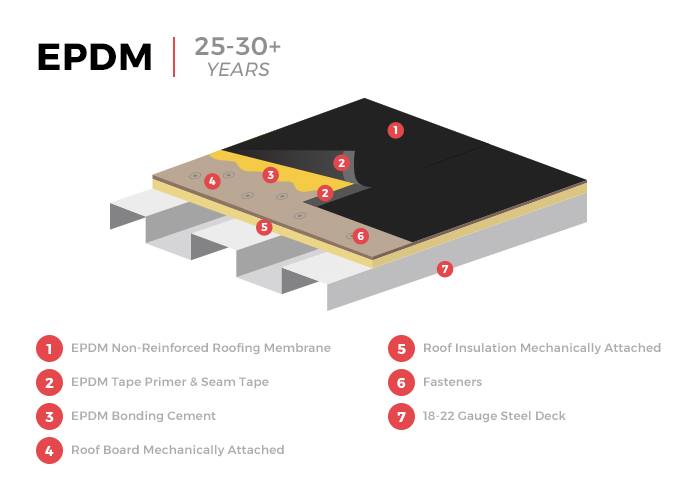
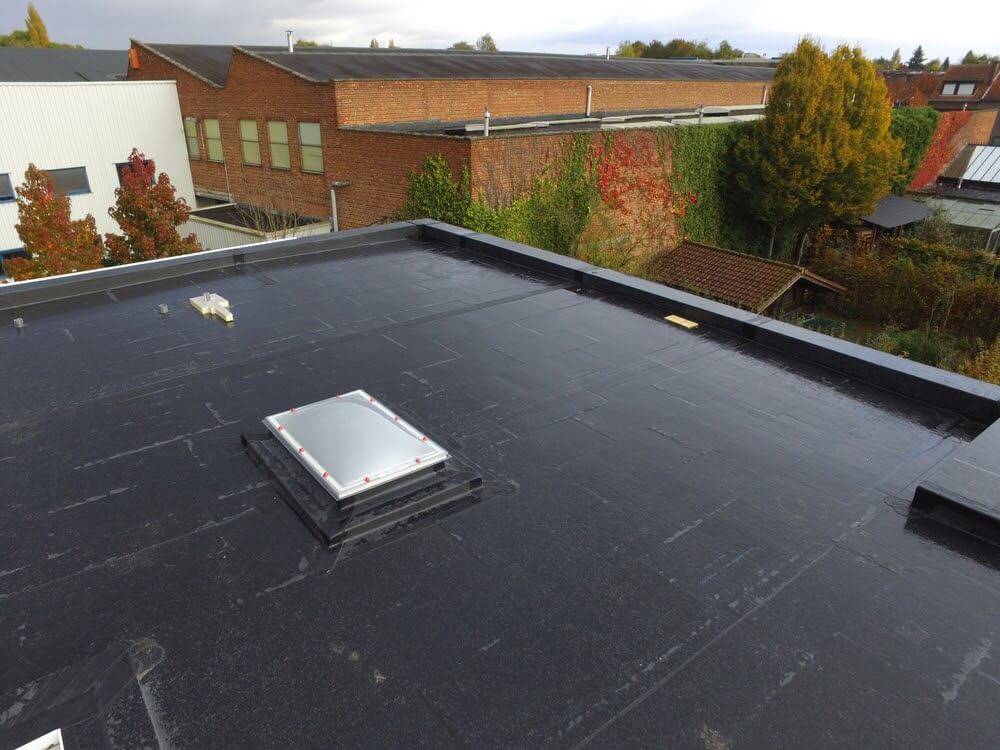
TPO (Thermoplastic Olefin)
TPO (Thermoplastic Olefin) is a type of single-ply roofing material that is widely used in commercial roofing applications. TPO is made from a combination of polypropylene and ethylene-propylene rubber, which provides it with high strength, durability, and flexibility. This material is known for its energy-efficient properties, which help to reduce cooling costs in buildings. TPO roofing systems are easy to install and maintain, and they are available in a range of colors to match the aesthetic of the building. Additionally, TPO roofing is UV resistant, which makes it ideal for use in sunny climates.
Pros:
- Energy Efficiency: TPO roofing has a high reflectivity rating, which can help reduce energy costs by reflecting sunlight and reducing the amount of heat absorbed by the building.
- Durability: TPO roofing is known for its durability and resistance to punctures and tears, making it a good choice for areas prone to strong winds or heavy foot traffic.
- Easy to Install: TPO roofing is easy to install, which can reduce labor costs and save time during the installation process.
- Environmentally Friendly: TPO roofing is a single-ply roofing material that is recyclable and free of plasticizers and other harmful chemicals, making it an environmentally friendly choice.
Cons:
- Expensive: TPO roofing is one of the more expensive roofing materials, making it a less cost-effective option for some commercial buildings.
- Limited Color Options: TPO roofing is typically only available in white or light-colored options, which can be limiting for some building owners who are looking for more design options.
- Limited Lifespan: While TPO roofing is durable, its lifespan is limited compared to other roofing materials, which can make it a less attractive option for building owners looking for a long-term solution.
- Difficult to Repair: TPO roofing is known for being difficult to repair, which can make it a less practical choice for building owners who want to minimize maintenance costs over time.
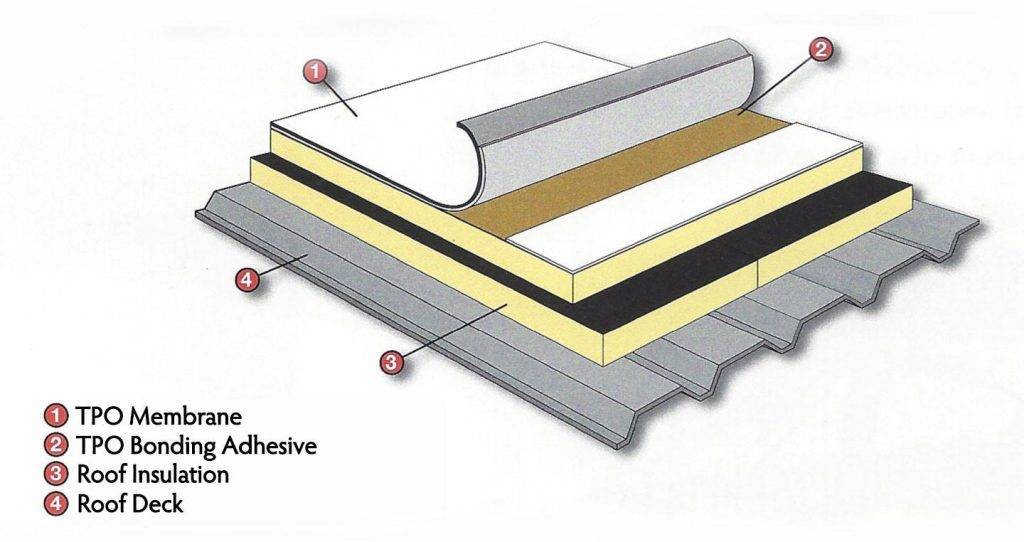
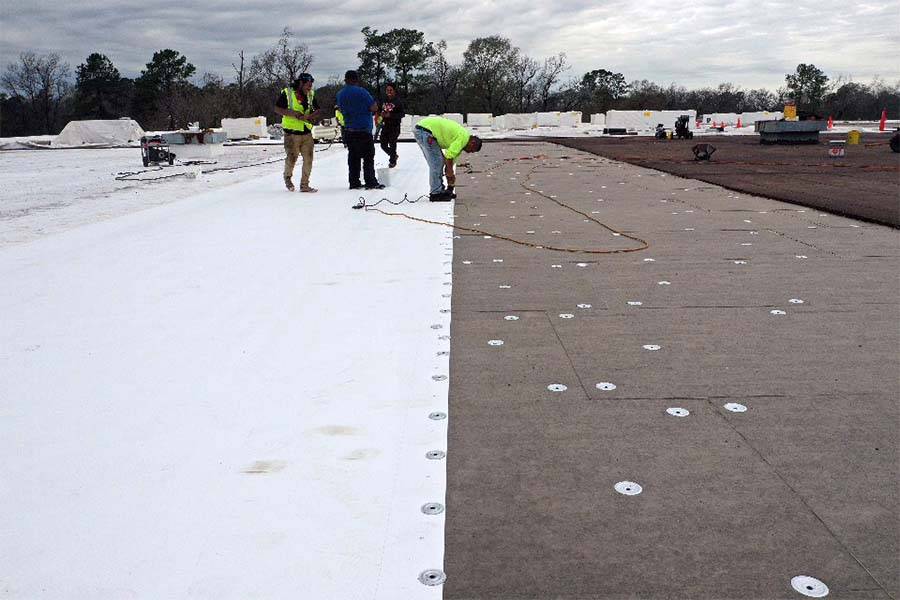
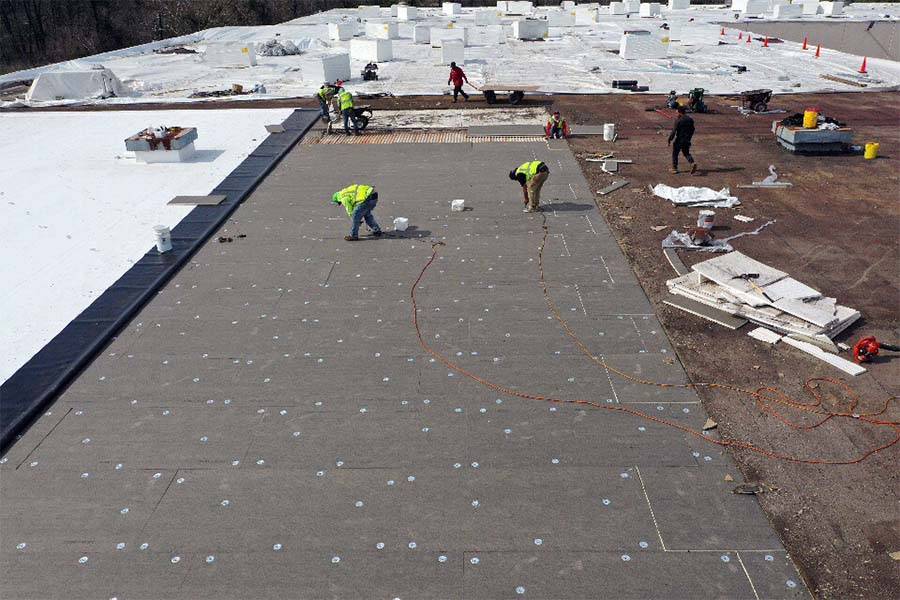
PVC (Polyvinyl Chloride)
PVC (Polyvinyl Chloride) is a type of thermoplastic material that is commonly used in the construction industry, including roofing. It is known for its durability, flexibility, and resistance to weather, chemicals, and UV rays. PVC roofing membranes are made from a blend of PVC resin, stabilizers, plasticizers, and other ingredients that are melted together and then formed into a solid, yet flexible, material. PVC roofing membranes can be used on flat or low-slope roofs, and they come in a variety of colors and thicknesses to suit different applications and aesthetic preferences.
Pros:
- Durability: PVC is a strong and flexible material that can withstand harsh weather conditions and heavy foot traffic, making it a good choice for flat roofs.
- Waterproof: PVC is water-resistant, which makes it ideal for flat roofs, where the potential for standing water is high.
- Low Maintenance: PVC is low maintenance and can last for many years with minimal upkeep.
- Energy Efficient: PVC roofing is known to reduce energy costs and improve insulation, as it reflects heat, reducing the need for air conditioning.
- Environmentally Friendly: PVC is a recyclable material, making it an environmentally friendly choice for roofing.
Cons:
- High Cost: PVC roofing can be expensive, especially when compared to other materials used for flat roofing.
- Difficulty of Installation: Installing PVC roofing can be a complex and difficult process, requiring the services of a skilled contractor.
- Limited Colors: PVC roofing is limited in the range of colors available, which can be a drawback if you’re looking for a specific color for your roof.
- Chemical Smell: PVC roofing has a strong, chemical smell when installed, which can be unpleasant for some people.
- Potential for Environmental Hazards: PVC roofing can release harmful chemicals into the environment, making it a controversial material to use for roofing.
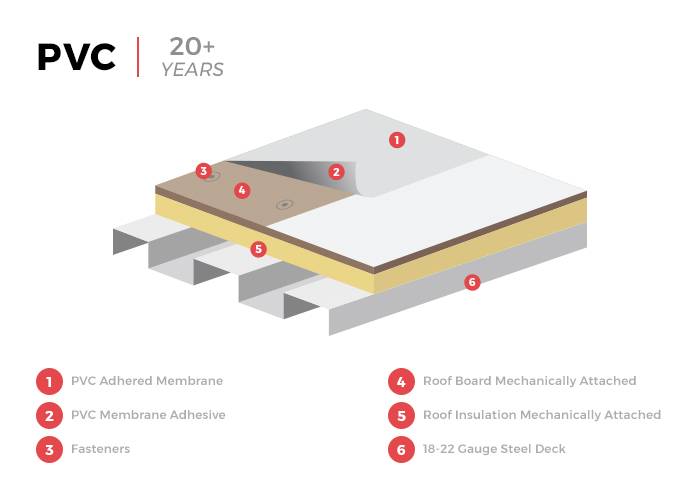
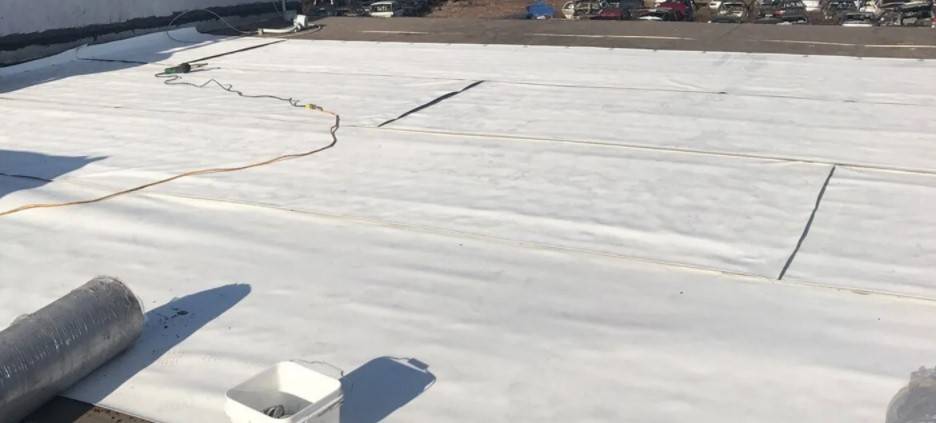
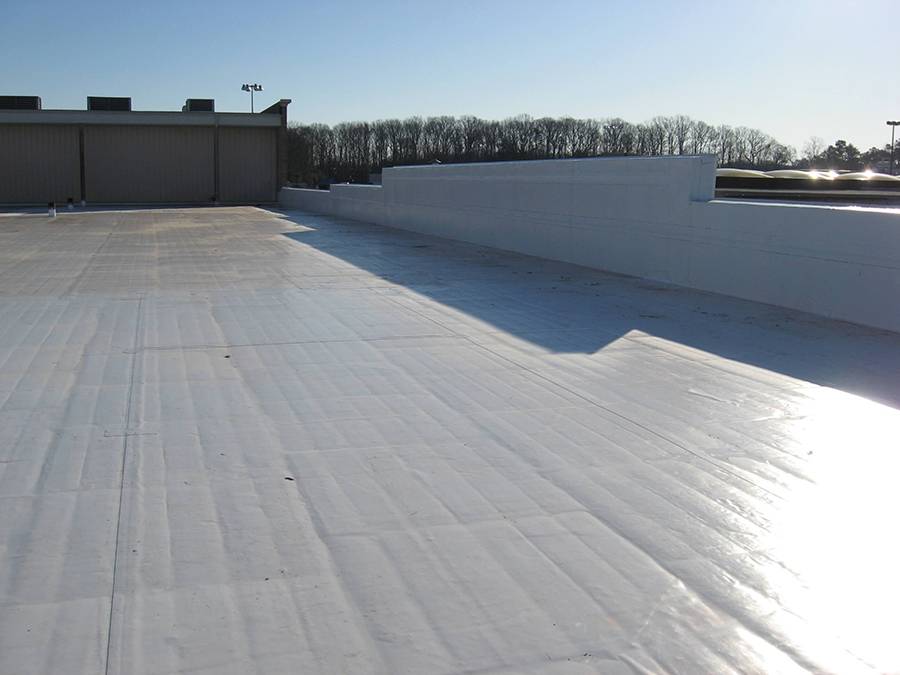
Built-Up Roofing (BUR)
BUR, which stands for Built-Up Roof, is a type of flat roofing system that is made up of multiple layers of asphalt and reinforcing fabric. The layers are alternated with hot asphalt or a cold adhesive and are built up to create a strong, durable roofing system. BUR roofing systems are commonly used in commercial and industrial buildings due to their ability to withstand heavy foot traffic and their resistance to fire, wind, and water damage.
Pros:
- Durability: BUR roofs are made of multiple layers of asphalt and reinforcing materials, which makes them very strong and resistant to damage from foot traffic, wind, and other weather-related issues.
- Cost-effectiveness: BUR roofs are relatively inexpensive compared to other roofing materials and systems.
- Versatility: BUR roofs can be installed on a variety of roofing surfaces and shapes, making them suitable for many different types of buildings.
- Energy Efficiency: Some BUR roof systems include reflective surfaces that can help to reduce the amount of heat absorbed by a building, which can result in lower cooling costs.
Cons:
- Complexity: Installing a BUR roof is a complex process that requires a significant amount of labor and materials.
- Heavy Weight: BUR roofs are heavy due to the multiple layers of material, which can put stress on the building’s structure and require additional support.
- Maintenance: BUR roofs require regular maintenance to prevent leaks and to maintain their performance over time.
- Environmentally Unfriendly: BUR roofs contain asphalt, which is a petroleum product and can be environmentally harmful. Additionally, BUR roofing materials are not easily recycled or reused.
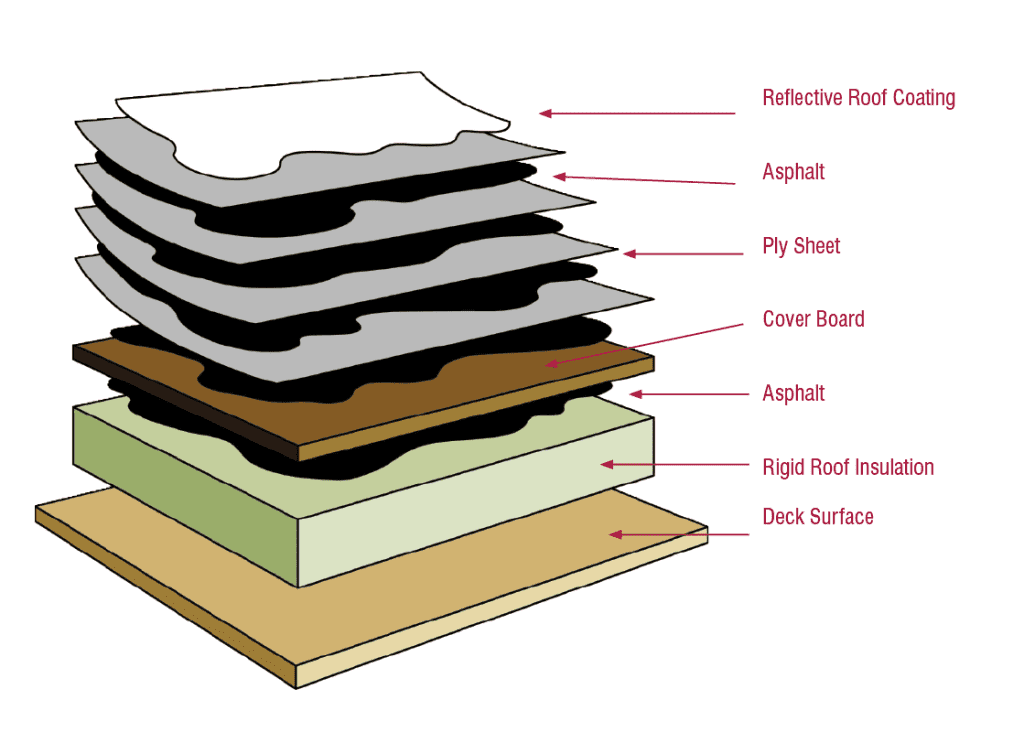
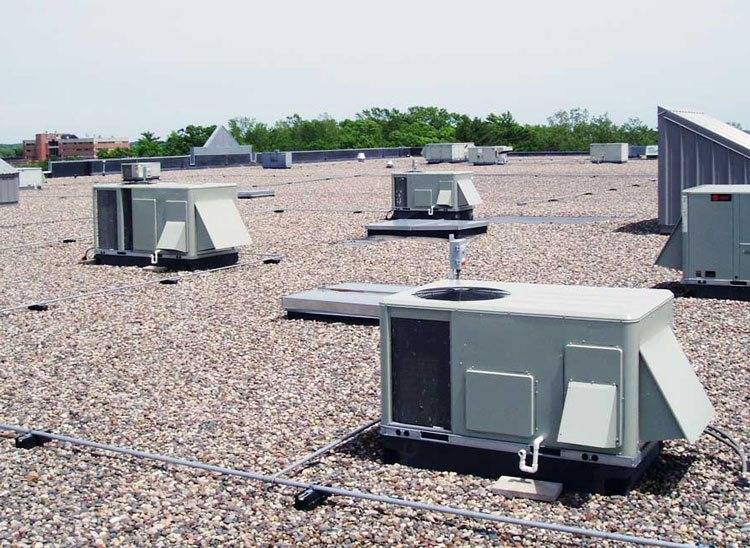
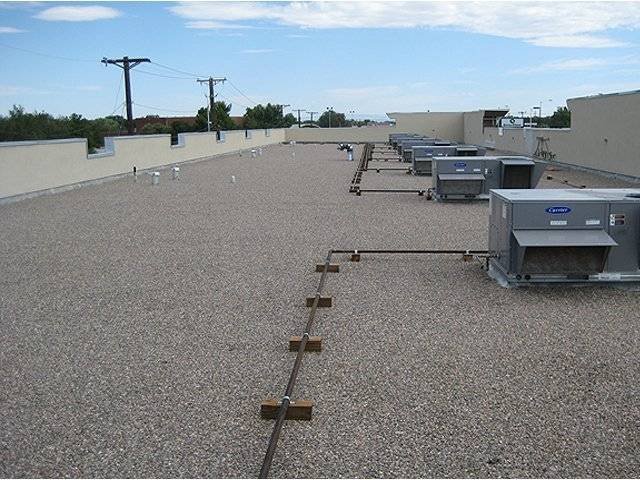
FAQ's
Drainage on a flat roof depends on the pitch of the roof. Typically, there are drainage issues when there is little to no pitch.
There are a couple of ways to ensure your flat roof drains properly:
- By pitching the roof slightly, the water will run off into a scuffer box or the gutters.
- If there is virtually no pitch, you can have a tapered flat roof installed so water can run off into the gutters.
Low spots on a roof refer to areas of the roof where water tends to pool or accumulate due to improper drainage.
This can be due to various factors such as:
- Poor slope
- clogged drains
- Overall poor design of the roof
Low spots can lead to significant problems such as water damage, leaks, and the growth of mold and mildew. It is important to address low spots on a roof to prevent these issues and to ensure the longevity and stability of the roof.
Flat roofs can crack due to various factors such as:
- Age
- Improper Installation
- Heavy Weight on the Roof
- Poor Maintenance
- Extreme Weather Conditions
The benefits of a flat roof include:
- More usable space
- Lower cost
- Easier to install and maintain
- Versatile design options
- Energy efficiency
- The type and length of warranty that you can expect with a new roof will depend on the type of material used and the roofing contractor you choose.
- Here at Adriatic Home Improvement, you are provided a manufacturer warranty and a 15-year warranty on labor with every roof replacement.